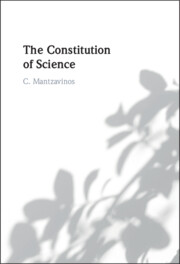In a time when disinformative challenges to the results of science are widespread, Chrys Mantzavinos offers this careful, wide-ranging, ambitious, multi-pronged investigation into the many necessary and perhaps sufficient conditions to foster healthy scientific inquiry. Normativity emerges as a key to the solution in a context where problem-solving is central, social interactions are essential activities, and diverse values must be respected. Free expression, critical discussion, open access are principles that allow discovery, justification and applications to take place in this innovative philosophical account.’
James Alt - Frank G. Thomson Professor of Government Emeritus, Harvard University
‘A work of high intellectual ambition that offers an account of what makes science science from philosophical, social and economic perspectives. Mantzavinos never forgets that science and the societies in which it has thrived have been diverse and constantly evolving. Yet he offers an account of science - its constitution - that aims to capture its core values, both moral and epistemic.’
Lorraine Daston - Director Emerita, Max Planck Institute for the History of Science
‘Chrysostomos Mantzavinos has offered us a bold new perspective on the scientific enterprise. He views science as a polity with an unwritten constitution, and shows how this idea can cast new light on familiar philosophical questions. After decades during which the social character of science has been proposed and debated, philosophy informed by social theory finally steps in to take the notion seriously. This book should inspire a new genre of fertile discussions.’
Philip Kitcher - John Dewey Professor of Philosophy Emeritus, Columbia University
‘This outstanding book offers an innovative view of science as an unplanned, evolving practice with its own flexible norms; shows how well it has served us in enforcing a varied batch of constraints on the search for knowledge; and identifies the principles under which our states should allow it to honor its informal constitution.’
Philip Pettit - L.S.Rockefeller University Professor of Human Values, Princeton University and Distinguished Professor of Philosophy, Australian National University



